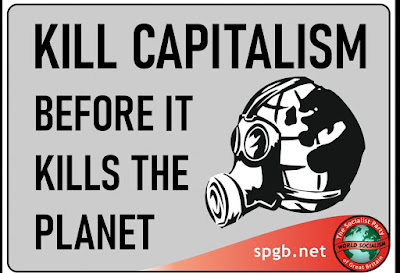Of the estimated 8 million animal, fungi and plant species on our planet, only a fraction have been scientifically documented, according to the international biodiversity council IPBES. Throughout Earth's history, species have lived, thrived and ultimately died out. But never before has so much biodiversity disappeared in such a short space of time.
Yet according to scientists, the world may lose nearly 1 million species by 2030, with one species already becoming extinct every 10 minutes. This is catastrophic because a world that lacks diversity is a dangerous place for all species, including humans.
Industrial agriculture, deforestation, overfishing, pollution, the spread of invasive species and soil sealing to make way for infrastructure are all contributing to an extinction rate that's now 1,000 times higher than it would be without humans around.
Between 1970 and 2014, the global population of vertebrates declined by 60%, while in South and Central America, that figure is almost 90%. The number of species living in freshwater environments decreased by 83% during the same period.
Will the global community succeed in halting the extinction crisis?
A recent report from the Leibniz Research Network for Biodiversity stressed how the great variety of species on our planet's is essential to just about every aspect of human life. "Whether it is the air we breathe, clean drinking water, food or clothing, fuel, building materials or medications — our life, our health, our nutrition and well-being all depend on the great diversity of resources that nature provides us with," it stated.
More than two-thirds of all crops worldwide rely upon natural pollinators such as insects. Without them, our food supply is likely to become less secure. Yet a third of all insect species worldwide are already facing extinction.
Losing biodiversity could also spell disaster for the medical sector, as many pharmaceuticals — including close to 70% of cancer treatments — are derived from nature.
"The knowledge of 3.5 billion years of natural evolution is stored in biological diversity," said Klement Tockner, director of Senckenberg Society for Nature Research, a group based in Frankfurt, Germany. "The progressive decline of our ecological capital poses the greatest threat to all of humanity — because once it's lost, it's lost forever."
Ecosystems are the interaction of different species that depend on one another for survival and their environment. Losses within a single genus can have repercussions through the entire ecosystem — including on humans.
Johannes Vogel, director of the Berlin Museum of Natural History, explained, "Frogs are currently dying out worldwide because of a fungus spreading due to climate change," he said. "Frogs eat a lot of mosquito larvae for example, so there will be more mosquitoes in the future — and mosquitoes cause more deaths globally than any other organism."
As early as 1992, the UN Conference on Environment and Development in Rio de Janeiro adopted the international Convention on Biological Diversity (CBD). Under the convention, signatory countries committed to promoting sustainable economies that operate within our planet's ecological limits. Further conferences and agreements followed. But so far, hardly any of the aims set out three decades ago have been achieved. The problem is all individual nations had to set their own conservation targets, but many of these have amounted to nothing more than declarations of intent. Particularly in industrialized nations, very few effective measures have been implemented.
"While we can agree to work toward the 1.5 degrees Celsius target on the climate crisis — the fight against the crisis of nature is much more complex,” said Nicola Uhde, biodiversity policy expert at German environmental NGO BUND. "It cannot easily be reduced to a buzzword or standard. Awareness of the value of nature often only emerges with its loss," she added.
Dying frogs rarely make the headlines. Yet the climate and biodiversity crises are intertwined. Rising temperatures and changing climatic conditions are driving some species to extinction. And as forests are cleared and wetlands drained, not only do the species they support vanish, essential carbon sinks are also lost, which in turn increases global warming. This is why both crises need to be tackled together.
′Biodiversity loss is humanity′s greatest threat′ | Global Ideas | DW | 21.06.2022


No comments:
Post a Comment